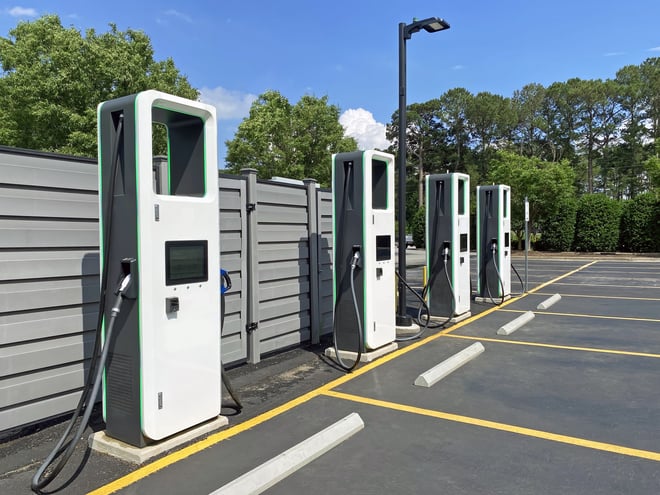Take Action On Rhode Island’s 2022 Greenhouse Gas Emissions Reduction Plan
Rhode Island’s Executive Climate Change Coordinating Council (EC4)needs your input on their draft chapters of the...
 On December 15th, Rhode Island's Executive Climate Change Coordinating Council (EC4) approved the final draft of the 2022 Greenhouse Gas Emissions Reduction Plan. Green Energy Consumers, unfortunately, found the Plan lacking in several ways, which we will detail in this blog.
On December 15th, Rhode Island's Executive Climate Change Coordinating Council (EC4) approved the final draft of the 2022 Greenhouse Gas Emissions Reduction Plan. Green Energy Consumers, unfortunately, found the Plan lacking in several ways, which we will detail in this blog.
Thanks to the Act on Climate (AOC) bill passed in 2021, Rhode Island must achieve 45% greenhouse gas (GHG) emissions reductions by 2030 and net-zero emissions economy-wide by 2050. In addition to setting these mandated emissions targets, the Act on Climate requires EC4 to update its 2016 Greenhouse Gas Emissions (GHG) Reduction Plan for 2022. This update is supposed to reconsider and confirm actions to ensure Rhode Island achieves the Act on Climate mandate. Unfortunately, the Plan falls short of meeting the Act on Climate targets.
The policies outlined in the Plan will only reduce Rhode Island’s emissions by 38% by 2030, leaving emissions 37% higher than the legal limit for that year. The Plan is simply not compliant with the Act on Climate.
Furthermore, we are concerned by the lack of detail in the Plan, particularly with respect to modeling. It is unclear what the breakdown of the 38% emissions reduction is; in other words, we just don’t know how much will come from each priority action.
Green Energy Consumers submitted comments to EC4 on the draft and final plans and gave verbal comments at a public hearing on the 15th. Here, we’ll summarize for you what we thought and what we said. (If you’re curious, you can read the final Plan itself here.)
Of the three sectors, the electric sector is the strongest in terms of reducing GHG emissions. The Plan includes priority actions such as implementing the 100% renewable energy standard, modernizing the electric grid, continuing energy efficiency work, deploying advanced meters, procuring offshore wind, and completing the Regional Greenhouse Gas Initiative Program review. These are all crucial steps to transitioning to 100% renewable energy and meeting the Act on Climate mandate, but there is still more to be done. For instance, the plan lacks specifics on energy storage and demand management and urgency around implementing crucial advanced metering infrastructure for Time-of-Use Rates.
 The following additional priority actions would make the electric sector even stronger:
The following additional priority actions would make the electric sector even stronger:
Transportation is the largest (and growing) source of GHG emissions in Rhode Island, and as we mentioned before in our previous blog on the draft Plan, we are glad to see EC4 identify both electrification and reducing vehicle-miles-traveled (VMT) as approaches to this sector. However, we do not see the plan resulting in the needed level of EV adoption. The Plan understates the importance of adopting Advanced Clean Cars II and overstates the potential impact of the DRIVE incentive program given its limited funding. We were disappointed by the lack of detail on how to build out charging infrastructure and no urgency around implementing time-varying rates. And on the reducing-VMT front, the Plan fails to identify a path to funding the implementation of the Transit Master Plan and the Bike Mobility Plan.
The following priority actions are necessary in order to reduce emissions from the transportation sector:

Similar to the transportation sector, we found EC4’s priority actions within the thermal sector insufficient to reduce emissions and meet the Act on Climate mandate. EC4 intends to tackle thermal emissions with both strategic electrification and decarbonized fuels, but several of their priority actions lack detail and urgency. For instance, while the plan lists increasing biofuel blending to 50% by 2030 as a priority action, we do not believe there are enough biodiesel resources to ever meet that target and the Plan does not alleviate our concerns. The Plan also fails to prioritize updating Rhode Island’s building energy code, lacks urgency to adopt a Clean Heat Standard, and its heat pump implementation target of 15% by 2030 is far too low.
The following priority actions are necessary in order to reduce emissions from the thermal sector:

We acknowledge that the shortcomings in this plan are not due to a lack of effort or engagement by EC4 staff, but rather a lack of power and funding to implement the Plan. In our opinion, the Office of Energy Resources (OER), the Department of Environmental Management (DEM), and the Public Utilities Commission (PUC) are all understaffed and tasked to implement a plan without the resources to back it up.
While the Plan is a step in the right direction, it's no secret that it's inadequate and would be much stronger with the above recommendations. While the Act on Climate requires another update to the Plan in 2025 called the “2025 Climate Strategy”, we worry that waiting until then to incorporate stronger emissions reduction policies will be too little, too late. In the meantime, Green Energy Consumers Alliance will continue to advocate for such policies amongst the General Assembly and McKee Administration.
Rhode Island’s Executive Climate Change Coordinating Council (EC4)needs your input on their draft chapters of the...
The Resilient Rhode Island Act mandates that Rhode Island take active steps to mitigate and reduce the impacts of...
Comments